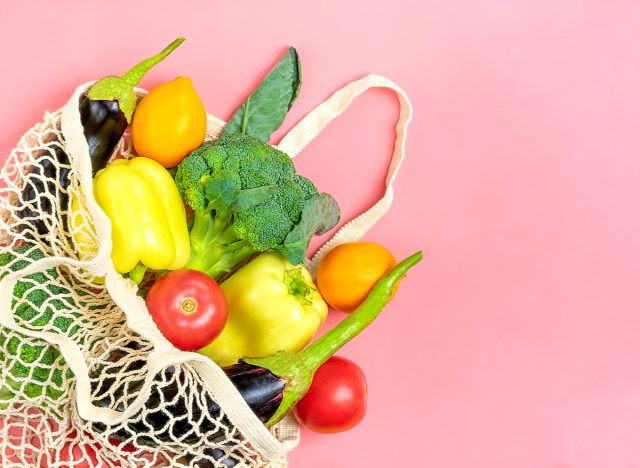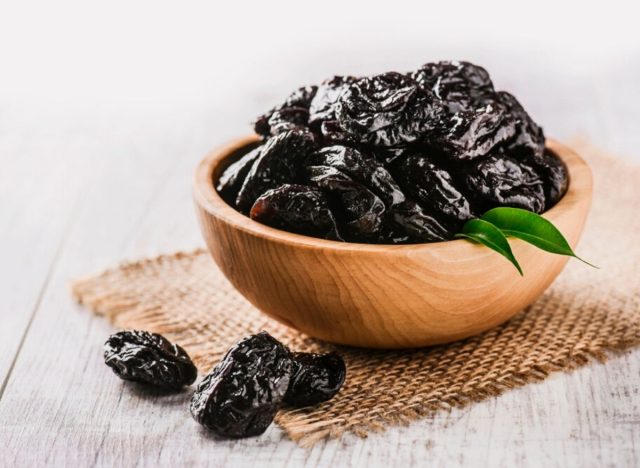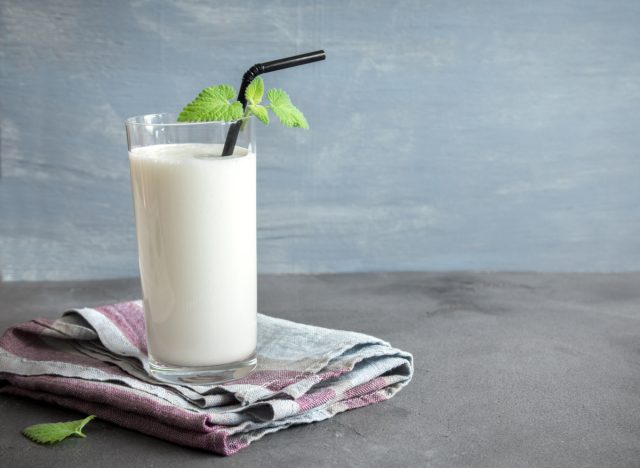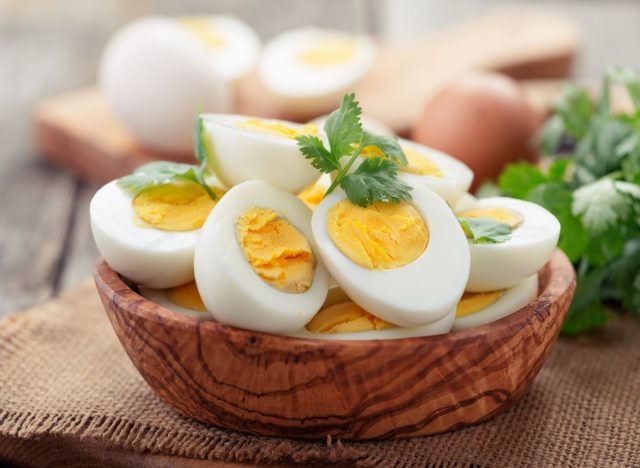Best Eating Habits If You're Over 60, Say Dietitians

Whether you like to admit it or not, your body ages. Although your mind may still feel like it's in its twenties, your body is possibly lagging behind. Even if you're in great shape, you could be faced with ailments like high blood pressure, heart problems, or anything else that can come with getting older.
Exercise and a healthy diet play an important role in making sure you're as healthy as you can be, hopefully leading to a longer life. Our medical expert board dietitians give advice on some of the best eating habits to try if you're over 60. Then, for more on longevity, be sure to check out The #1 Best Eating Habit from The World's Longest Living People.
Eat nutrient-dense foods.

Nutrient-dense foods are foods that give you lots of healthy nutrients without a lot of extra calories.
"This is because as you age, it's easy to gain weight, and you want foods rich in nutrients to help prevent diseases like heart disease and cancer," says Lisa Young, PhD, RDN, author of Finally Full, Finally Slim.
Examples of nutrient-dense foods include colorful fruits and vegetables, low-fat dairy, fish, chicken, and beans. You can also select a variety of whole grains like oatmeal and brown rice.
Eat 5 to 6 prunes every day

"Both men and women are at risk of developing osteoporosis as they age, so supporting bone health is essential for the 60-plus crowd," says Lauren Manaker, MS, RDN, author of The First Time Mom's Pregnancy Cookbook and Fueling Male Fertility.
Adding 5 to 6 prunes to your diet every day has been shown to support bone health in postmenopausal women and in men over the age of 55. Manaker also says that prunes contain important bone health-supporting nutrients, including boron and magnesium.
Prunes also contain 3 grams of fiber, 6% of the daily recommended value for potassium, and nutrients like boron, vitamin A, iron, magnesium, vitamin K, and more than the bodies need to function properly.
Make sure you're getting enough calcium and vitamin D.

Since bone loss is common as you age, Young suggests that it's also important to get an ample amount of calcium and vitamin D.
"Calcium-rich foods include milk, yogurt, broccoli, and canned salmon with bones," says Young. "Vitamin D foods include fish like salmon, and because vitamin D is not found in many foods it's important to test your D levels and supplement if necessary."
Young advises that getting exercise is important for stronger bones as well. Try a weight-bearing exercise like brisk walking and weights, which is very helpful to help prevent osteoporosis.
Include eggs (including the yolk) in your diet.

Although you might focus a lot on the physical aspect of aging, you can't forget that your brain could need some TLC as well.
"Brain health becomes more of a priority as we age," says Manaker. "And among the nutrients that support cognitive health, choline appears to have some promising data surrounding its potential benefit."
Recent data showed that consuming as little as about one egg per week was linked to slower memory decline later in life compared to consuming no eggs.
Manaker states that The American Heart Association Nutrition Committee science advisory has announced that older, healthy individuals can consume up to two eggs per day within the context of a heart-healthy dietary pattern. And yes, that does include eating both the egg whites and the yolk!









